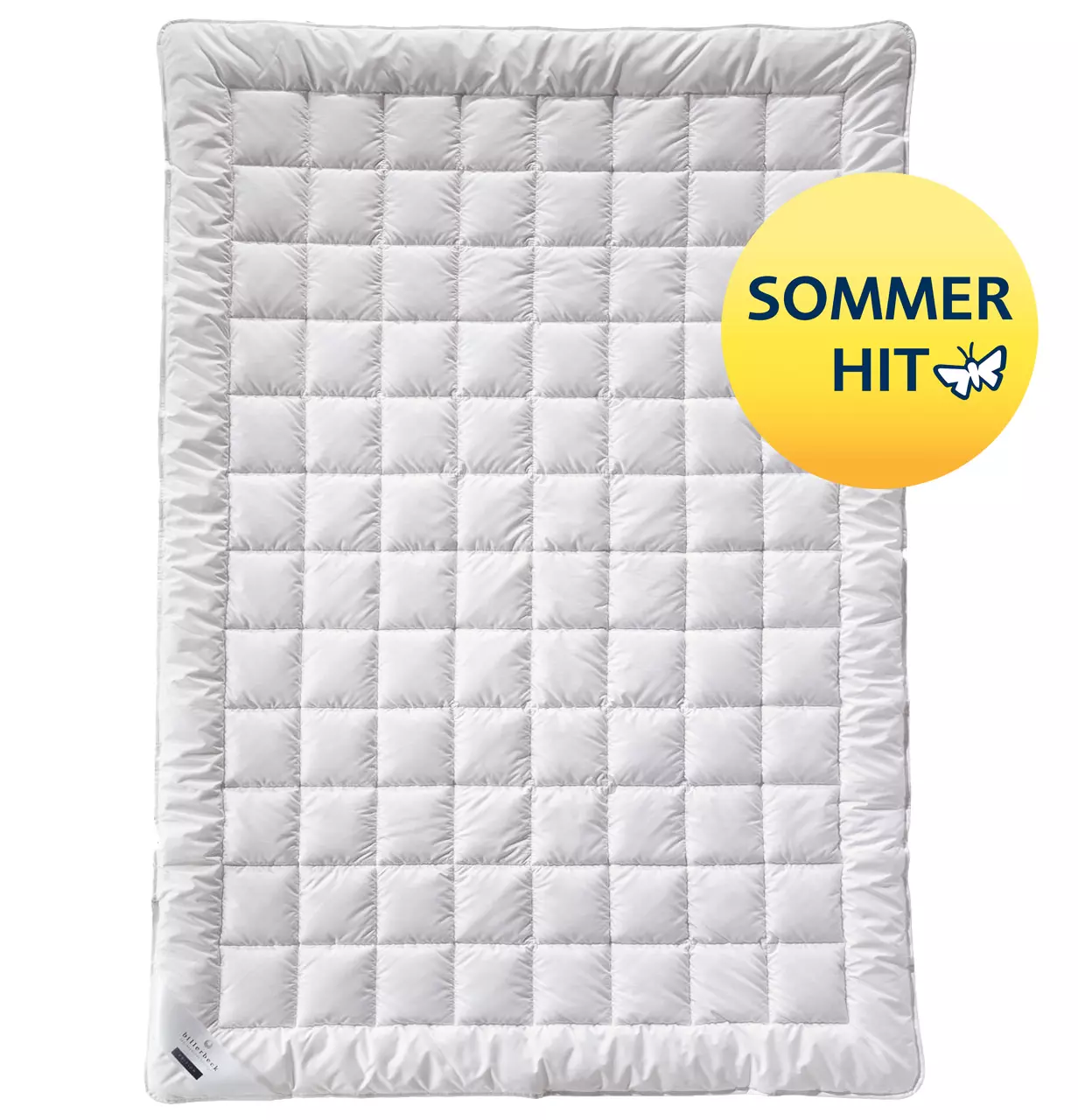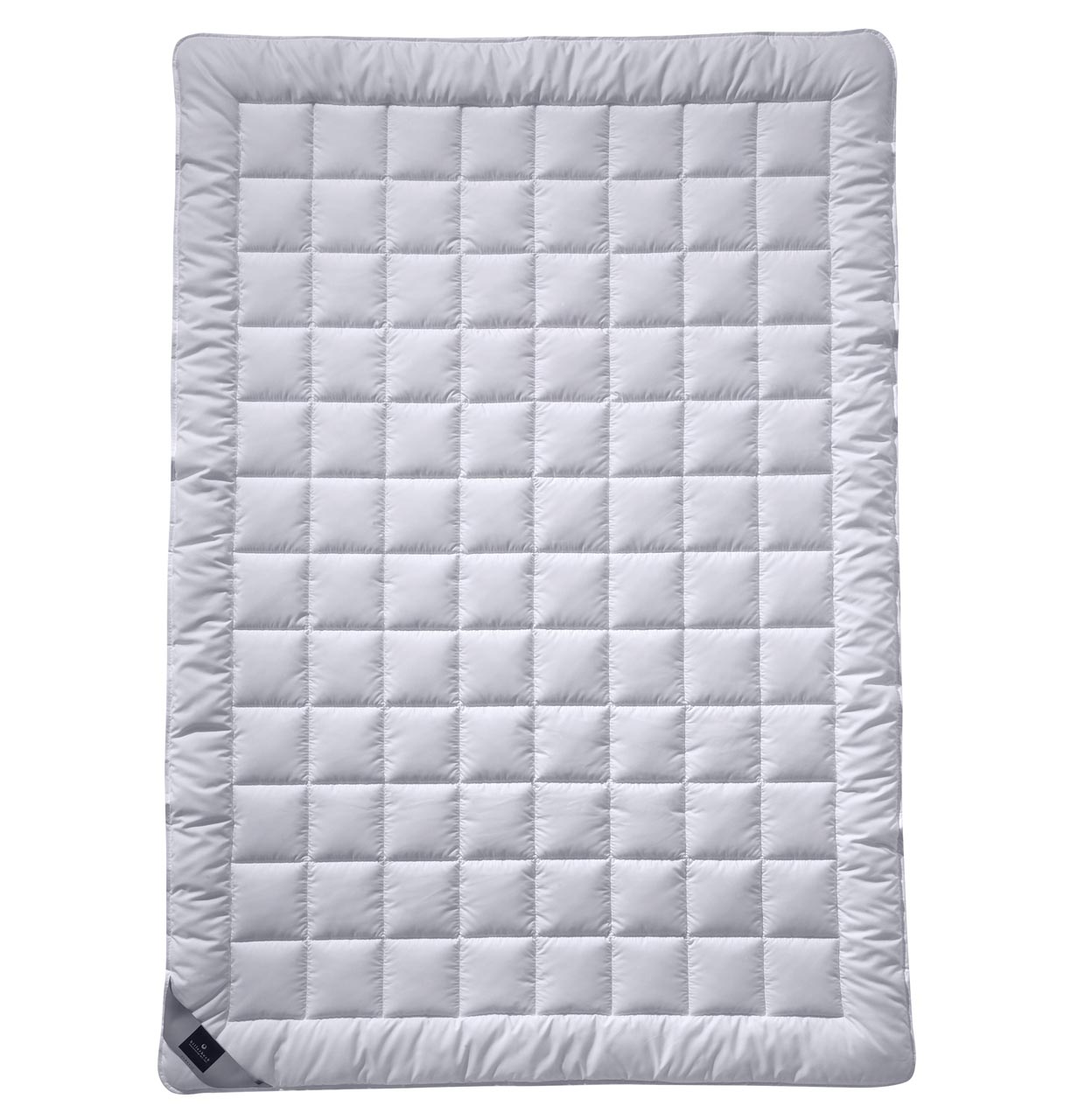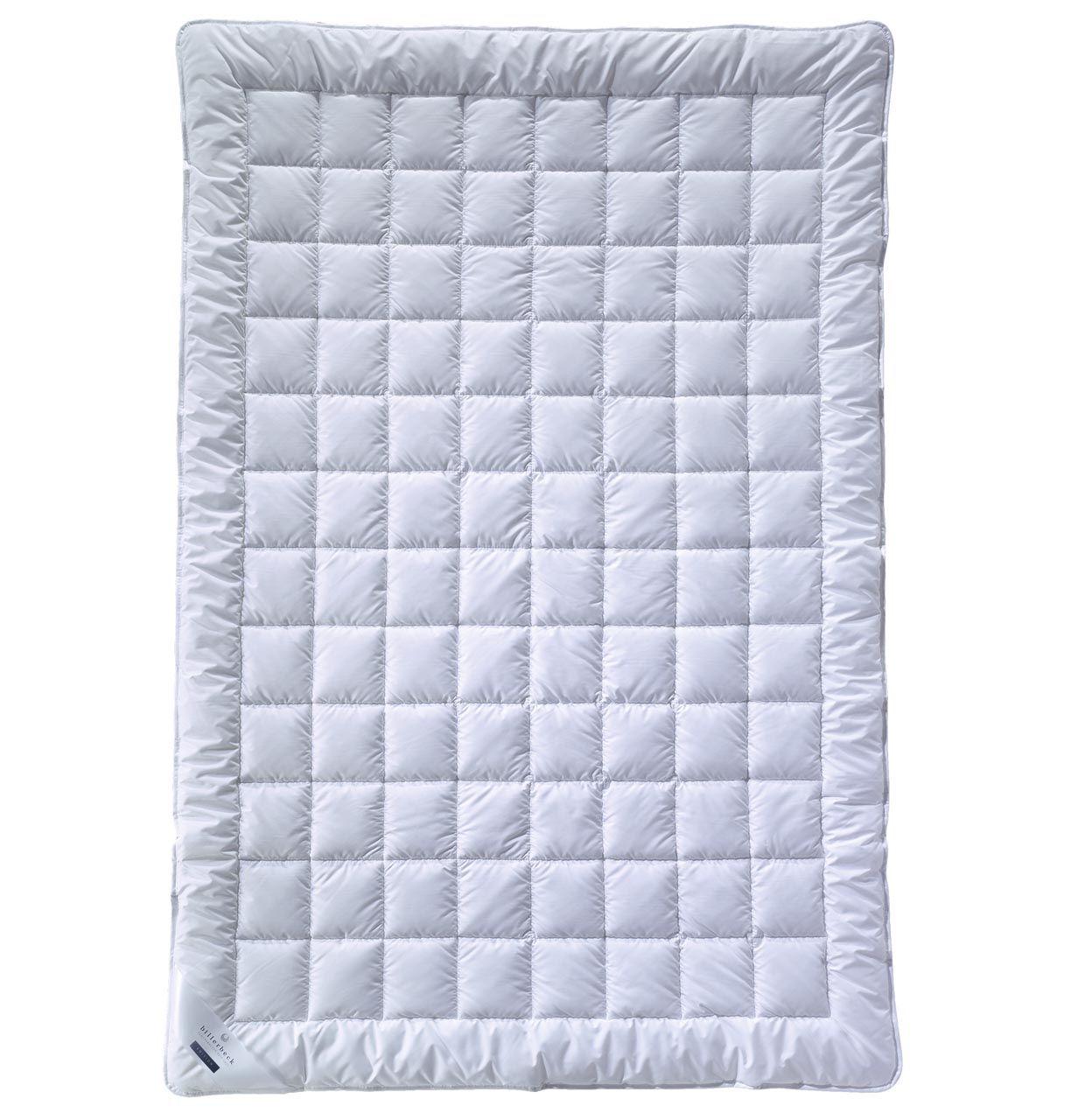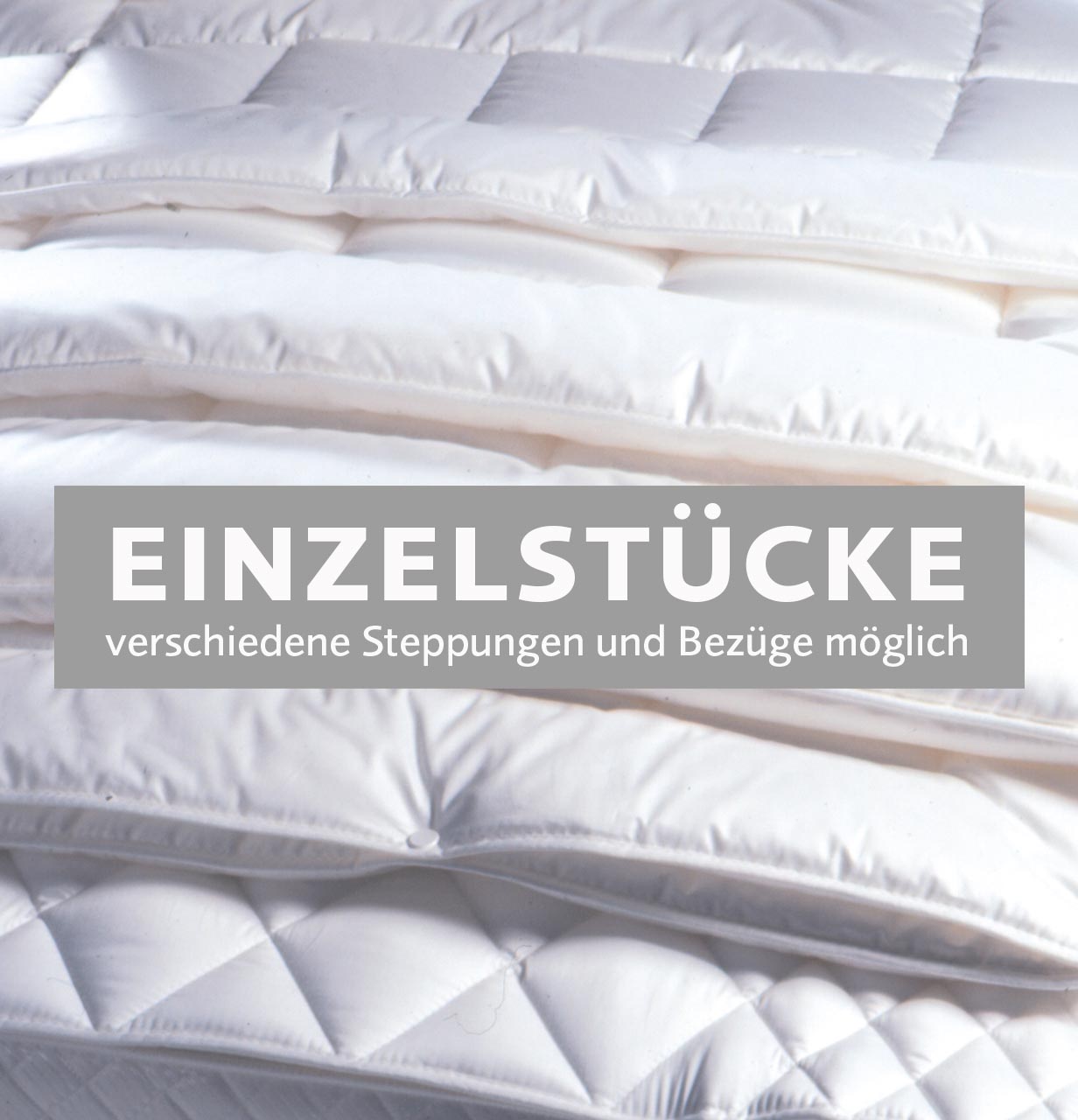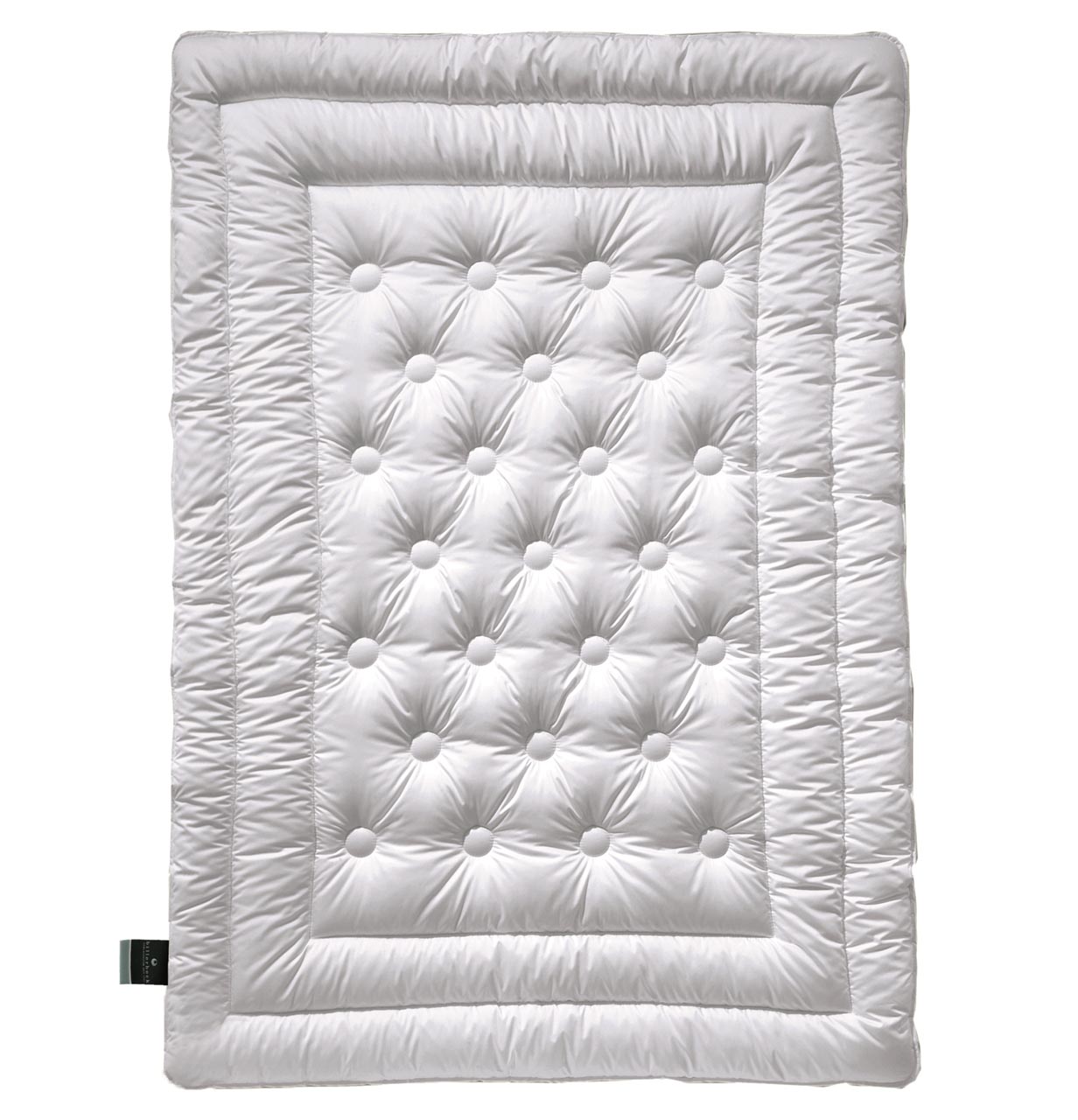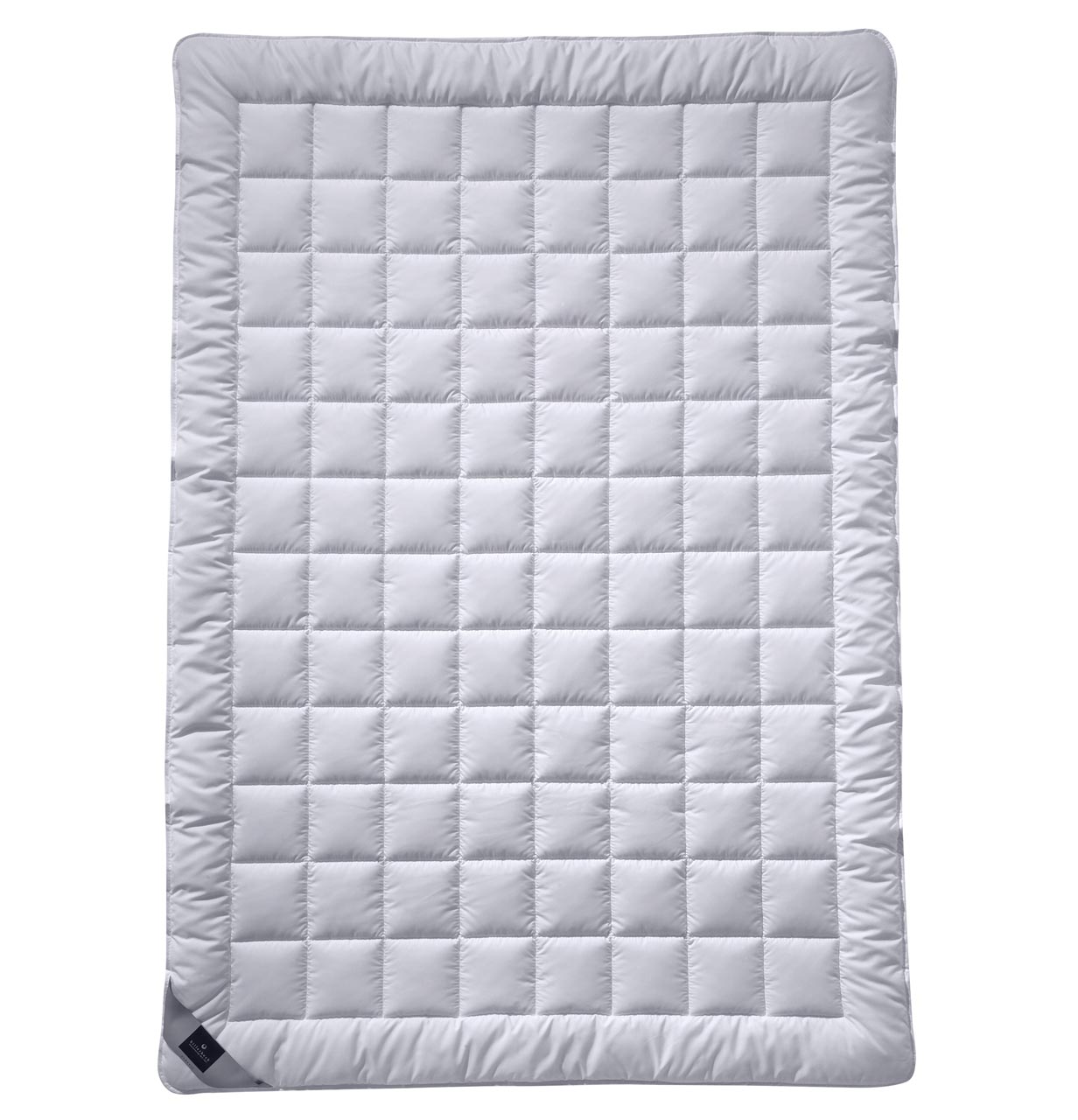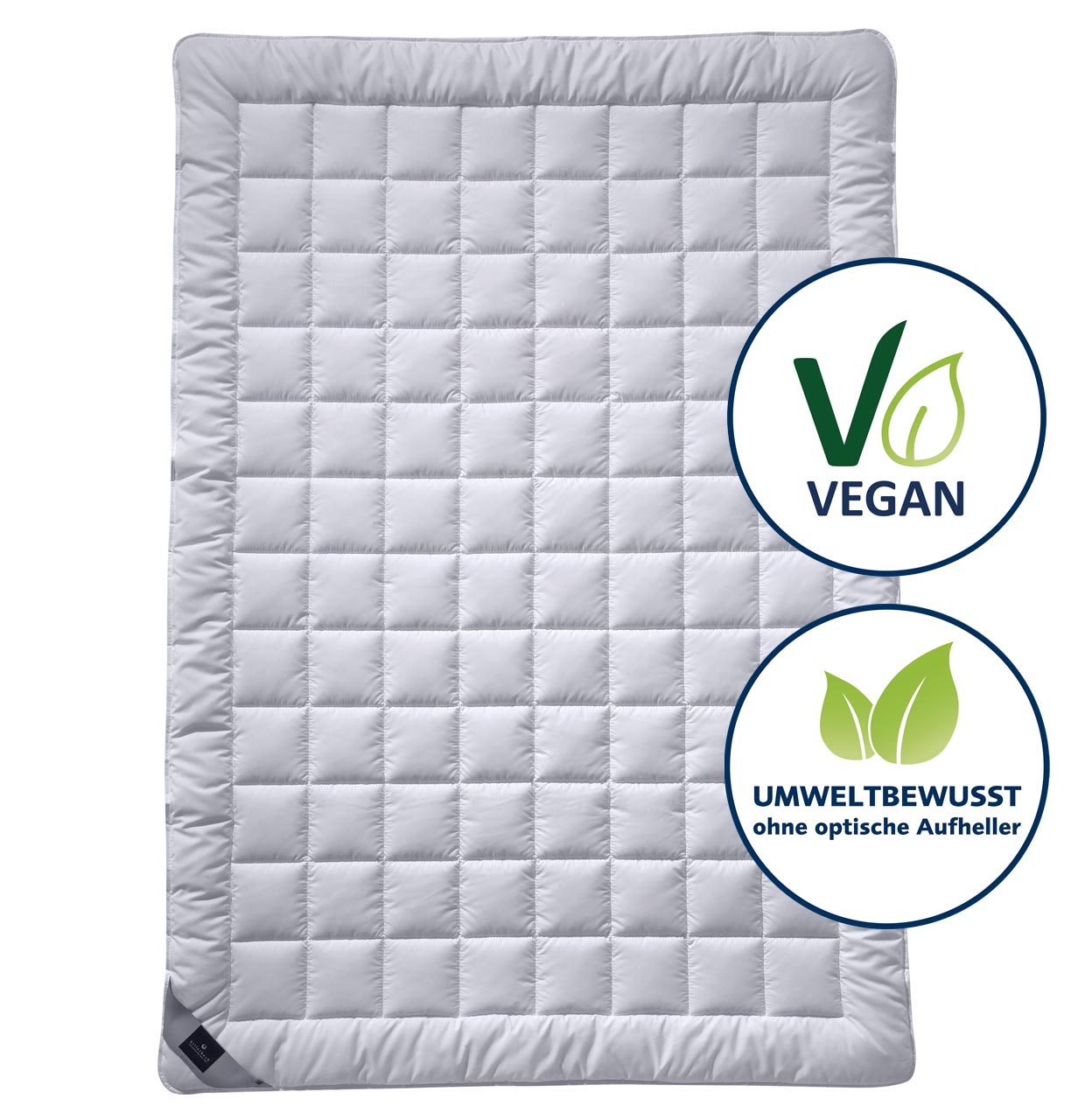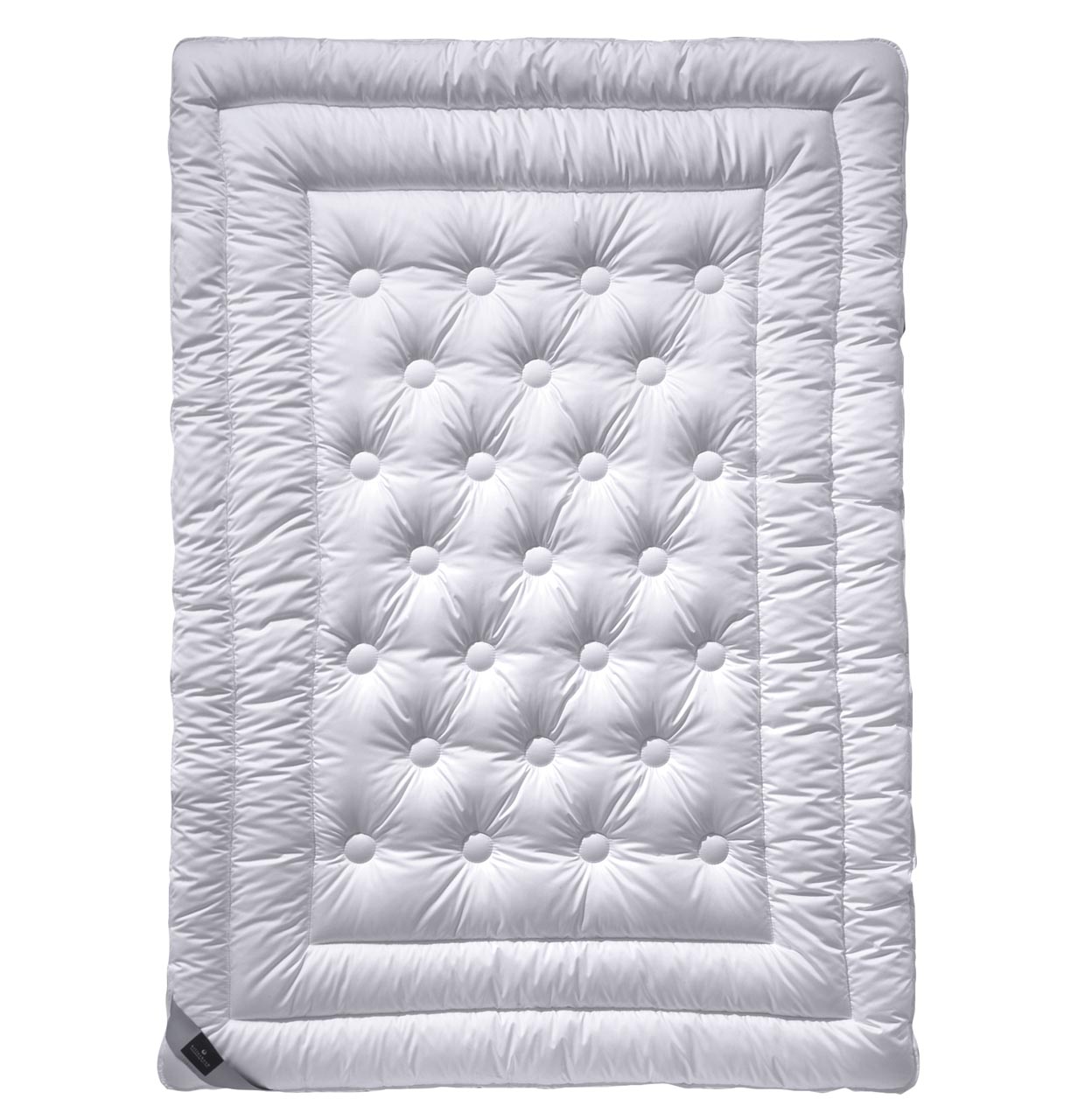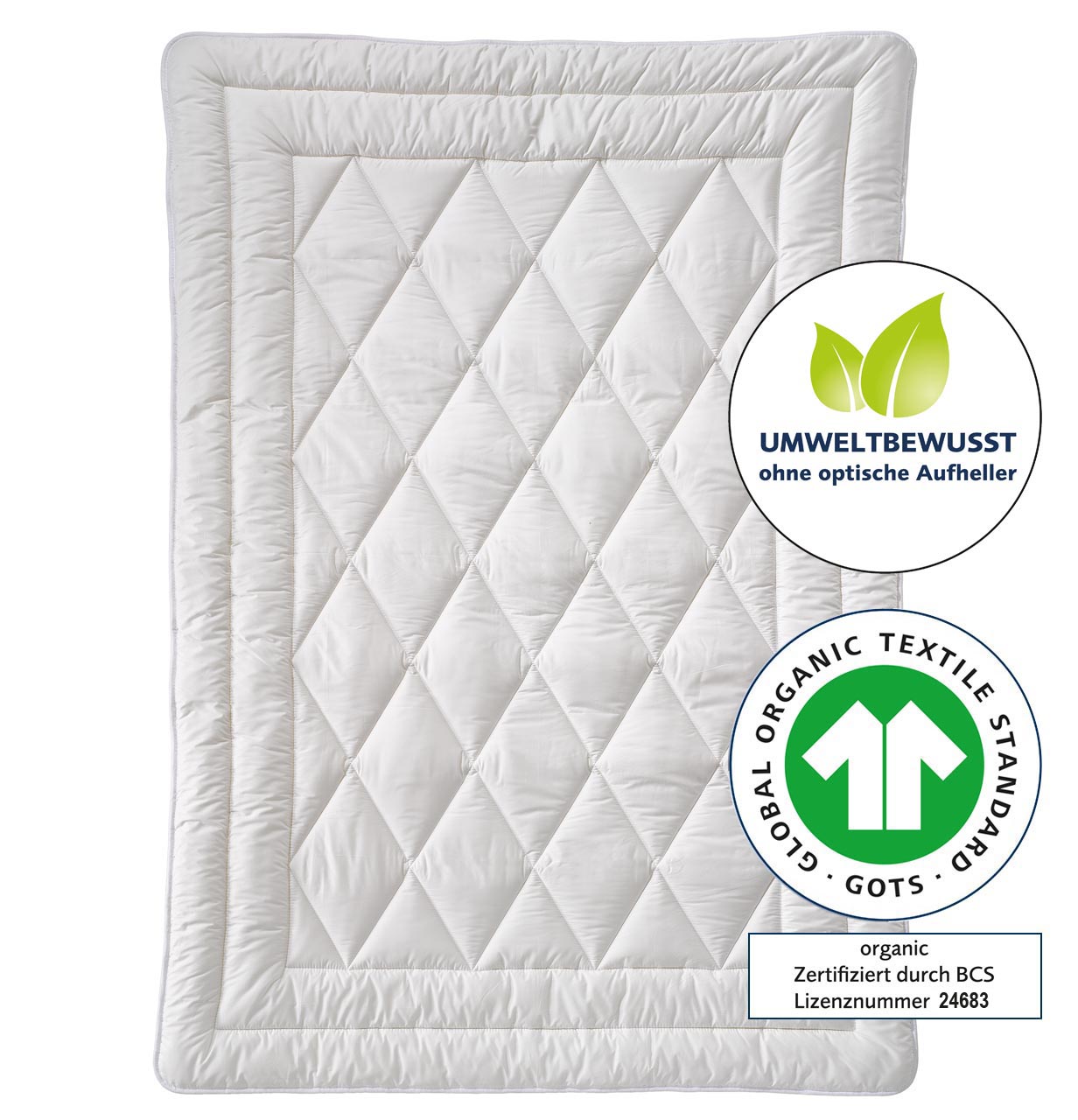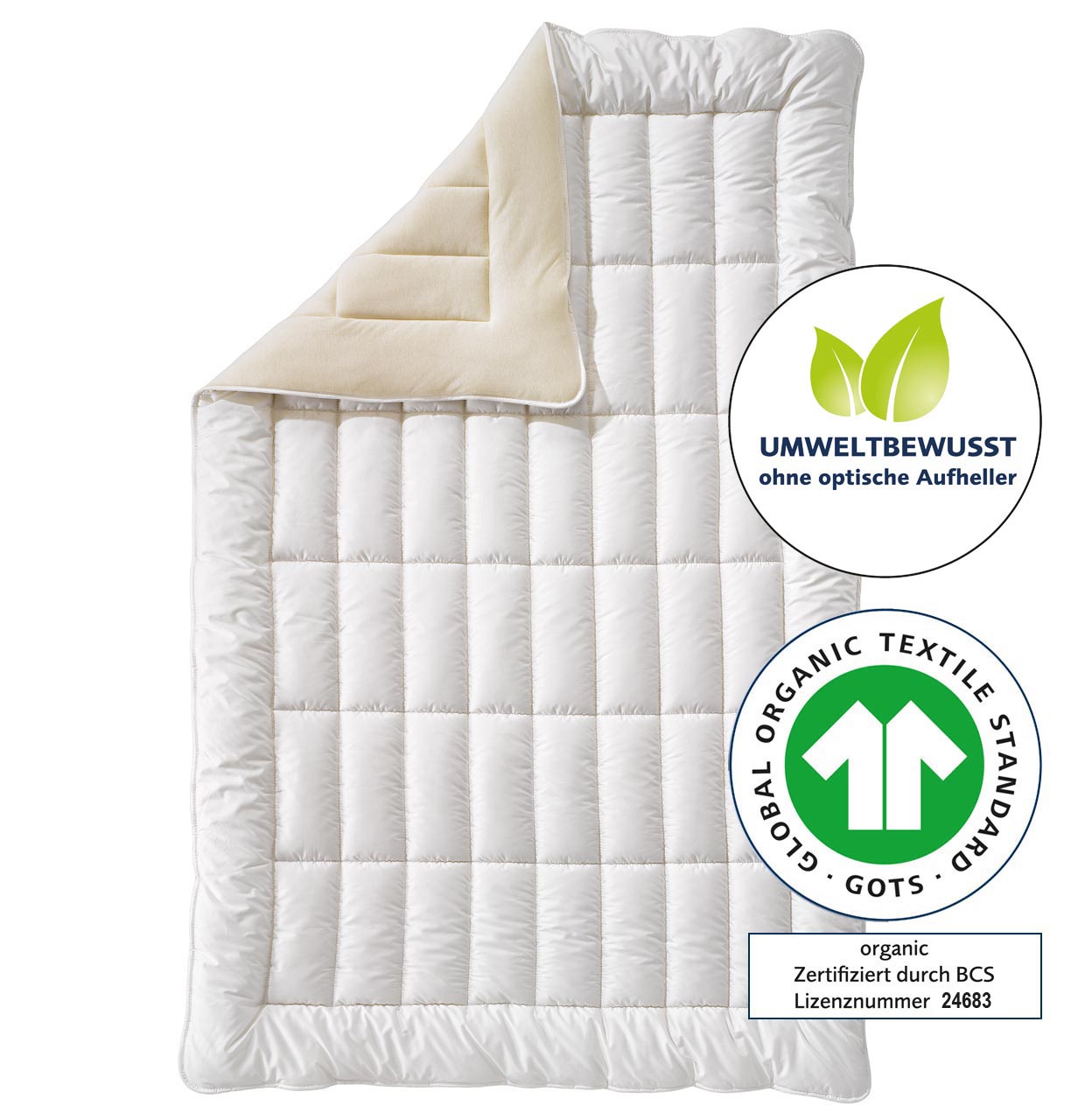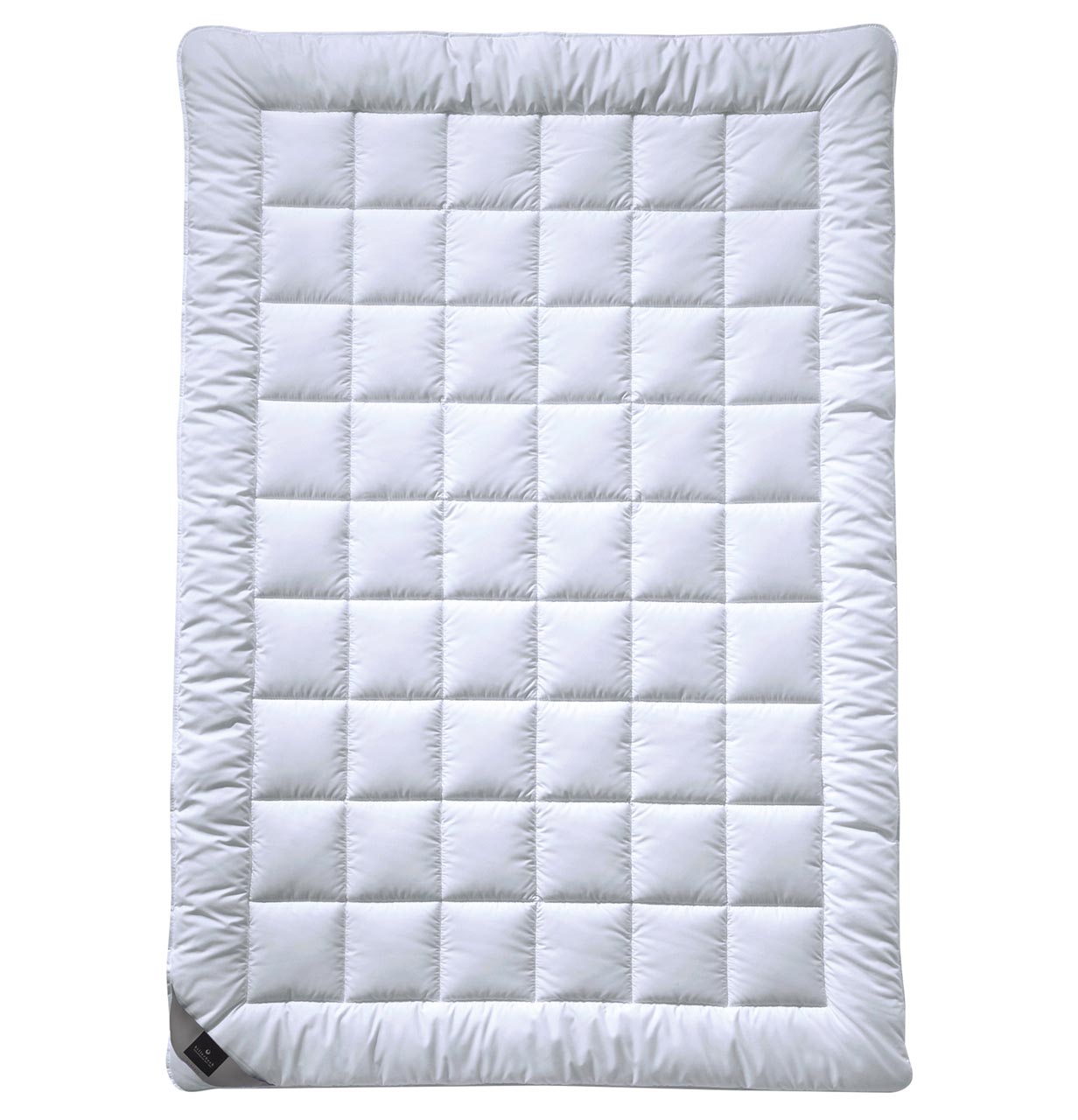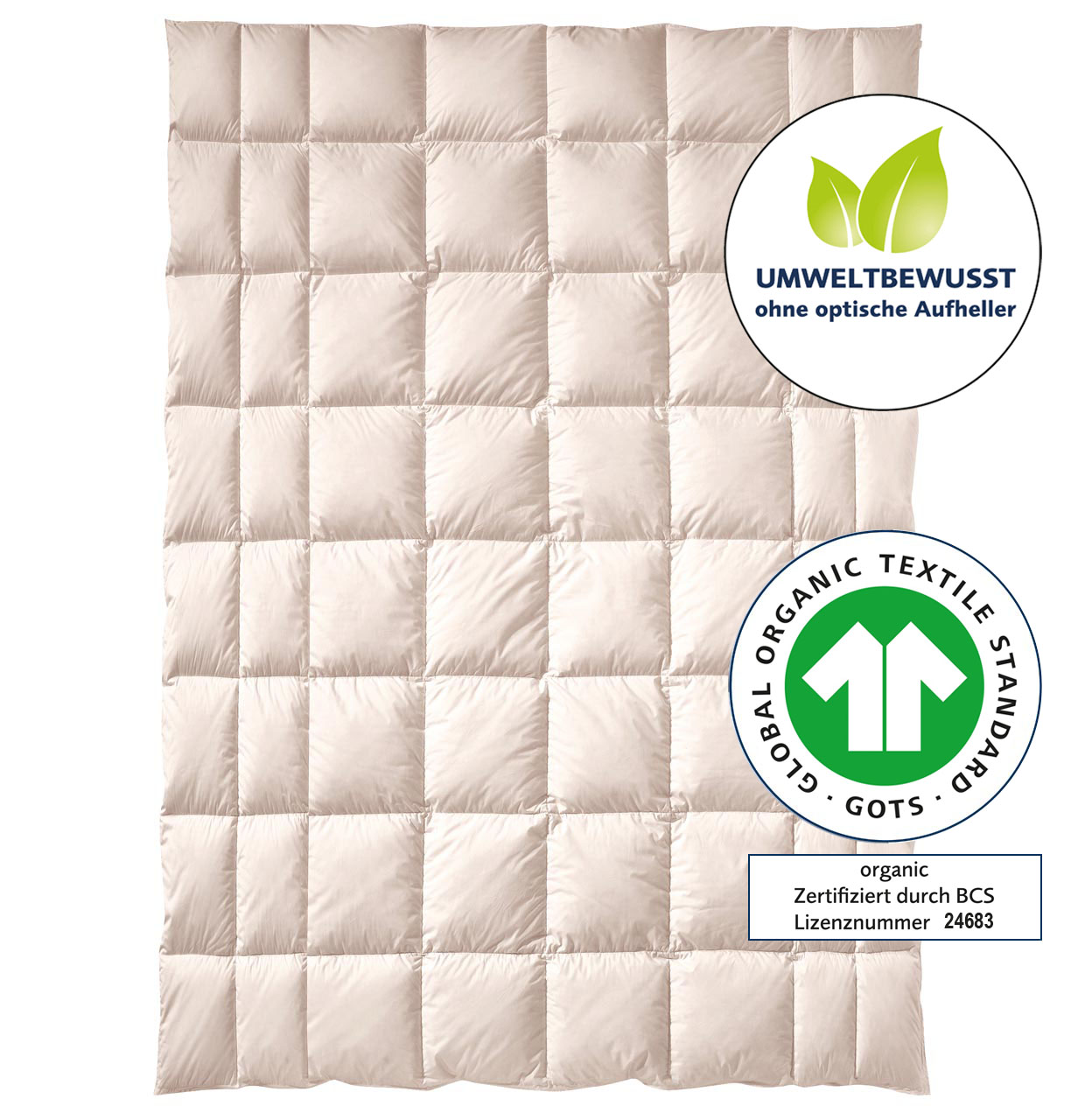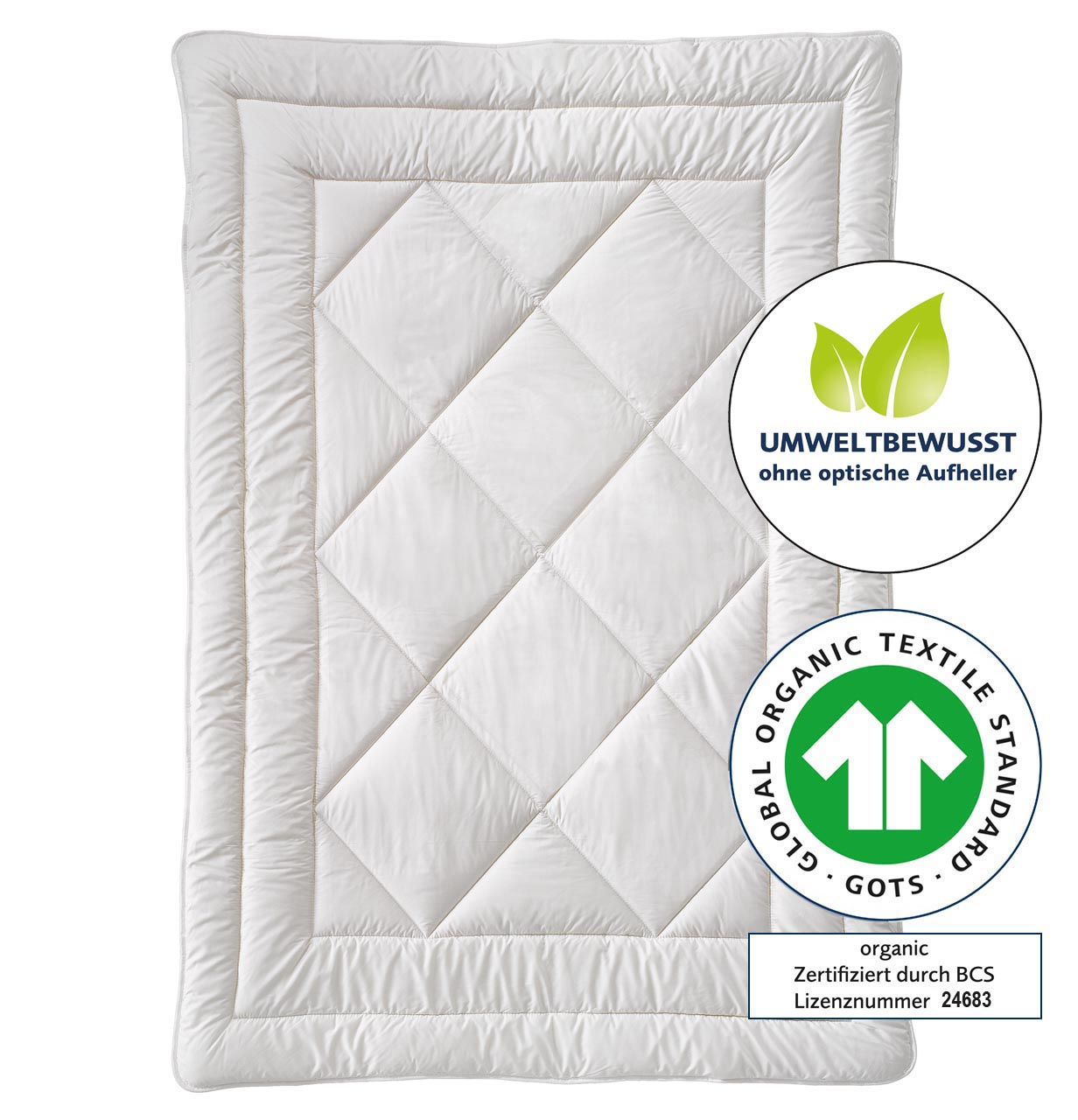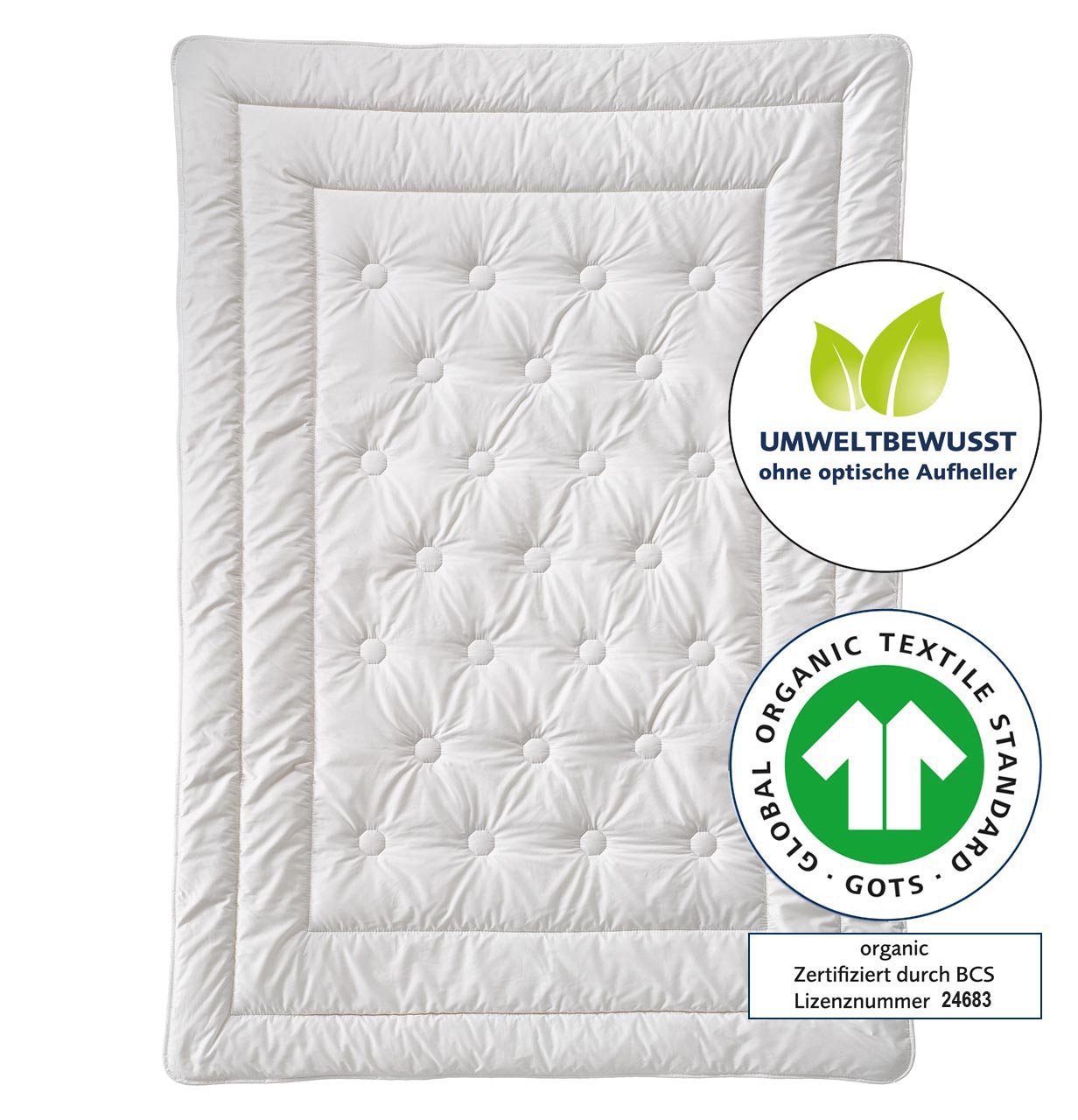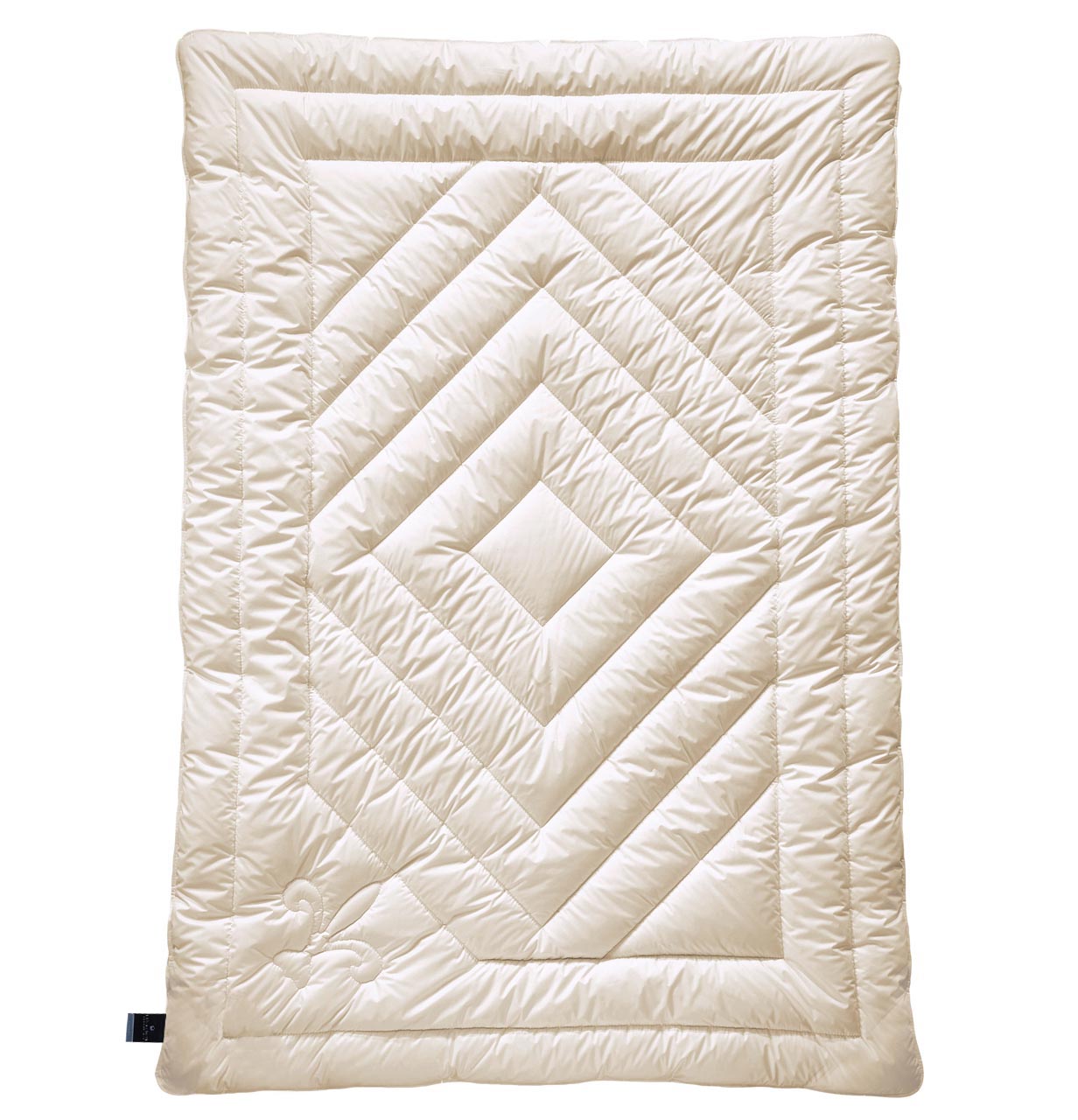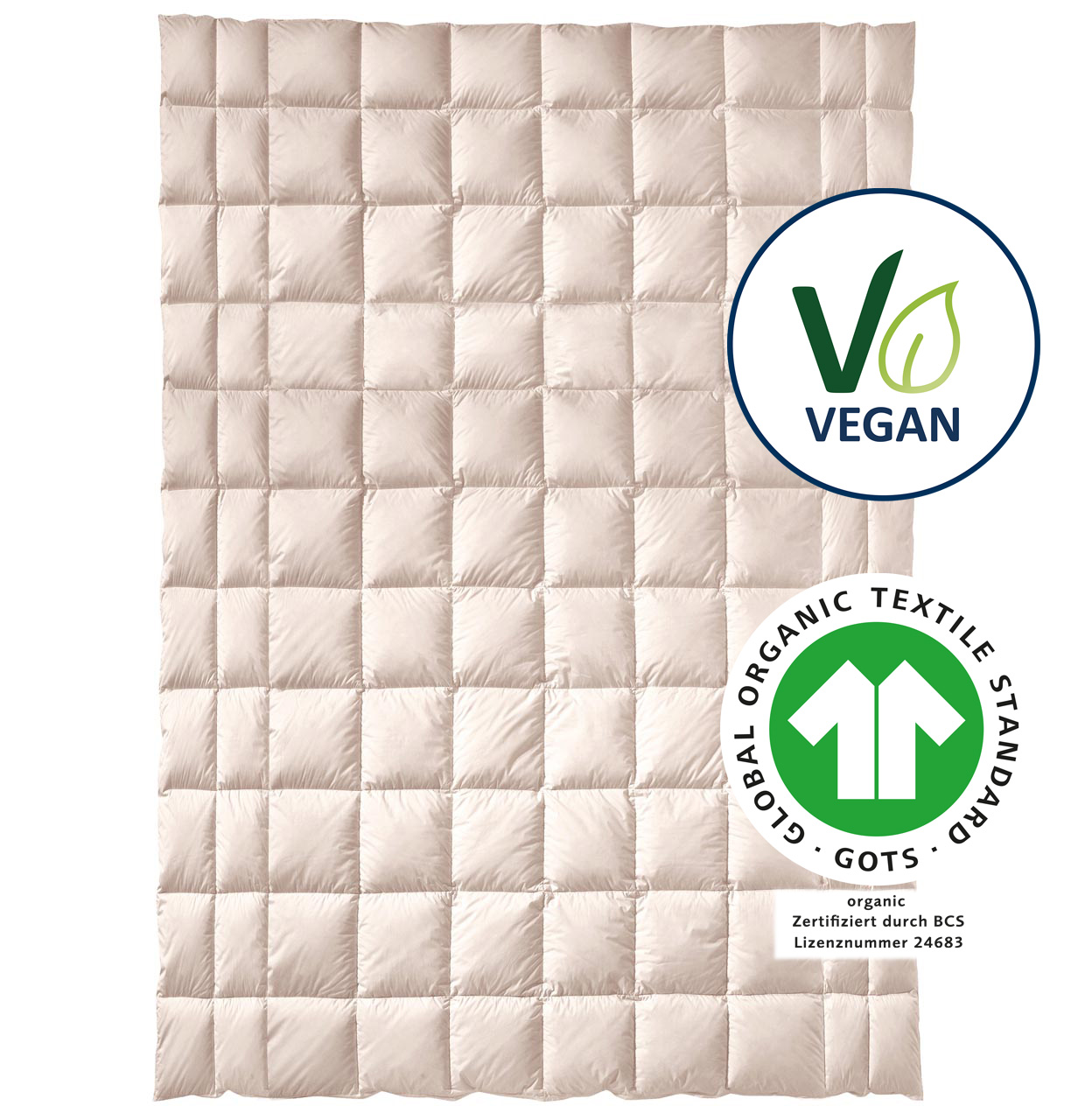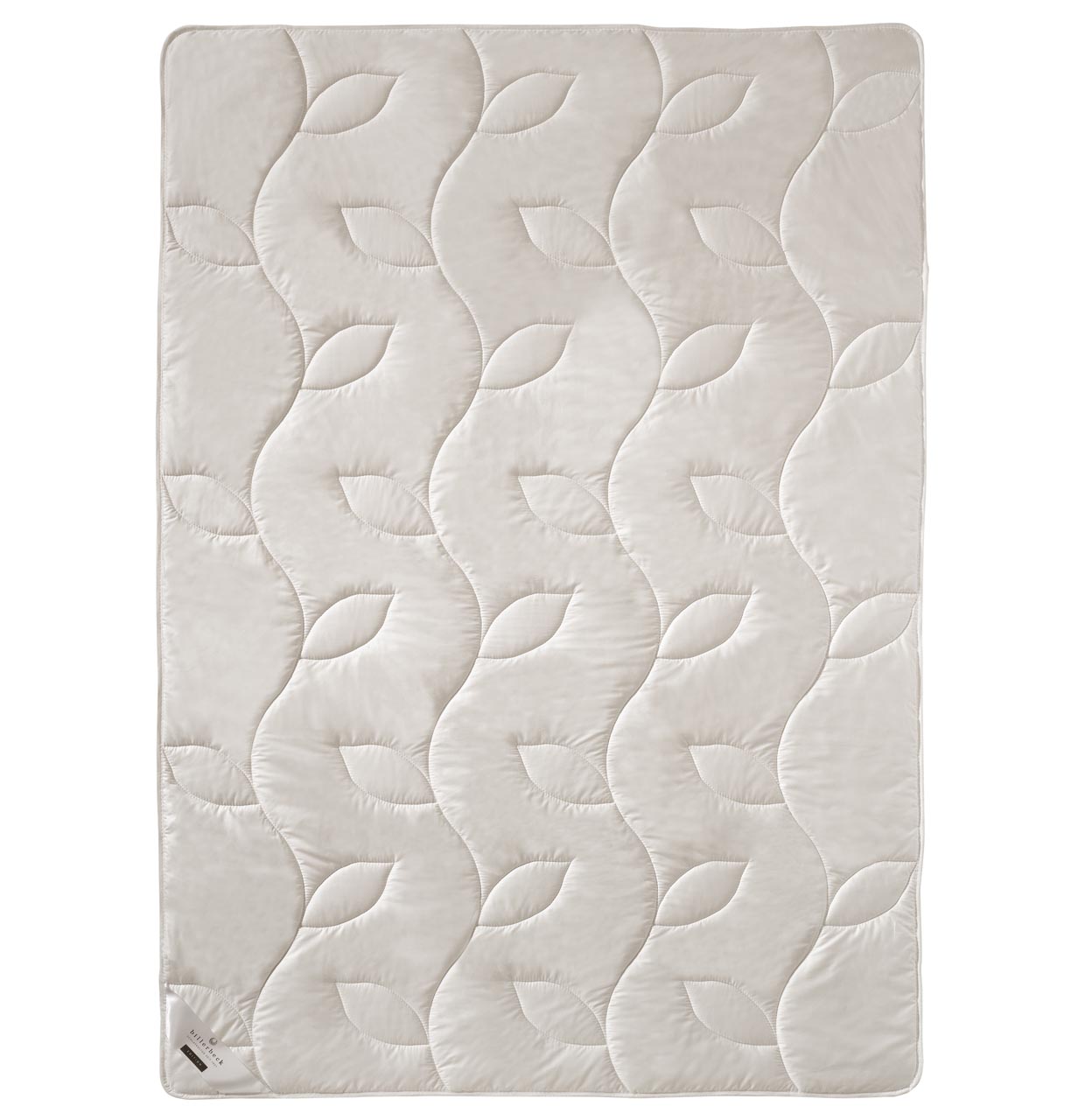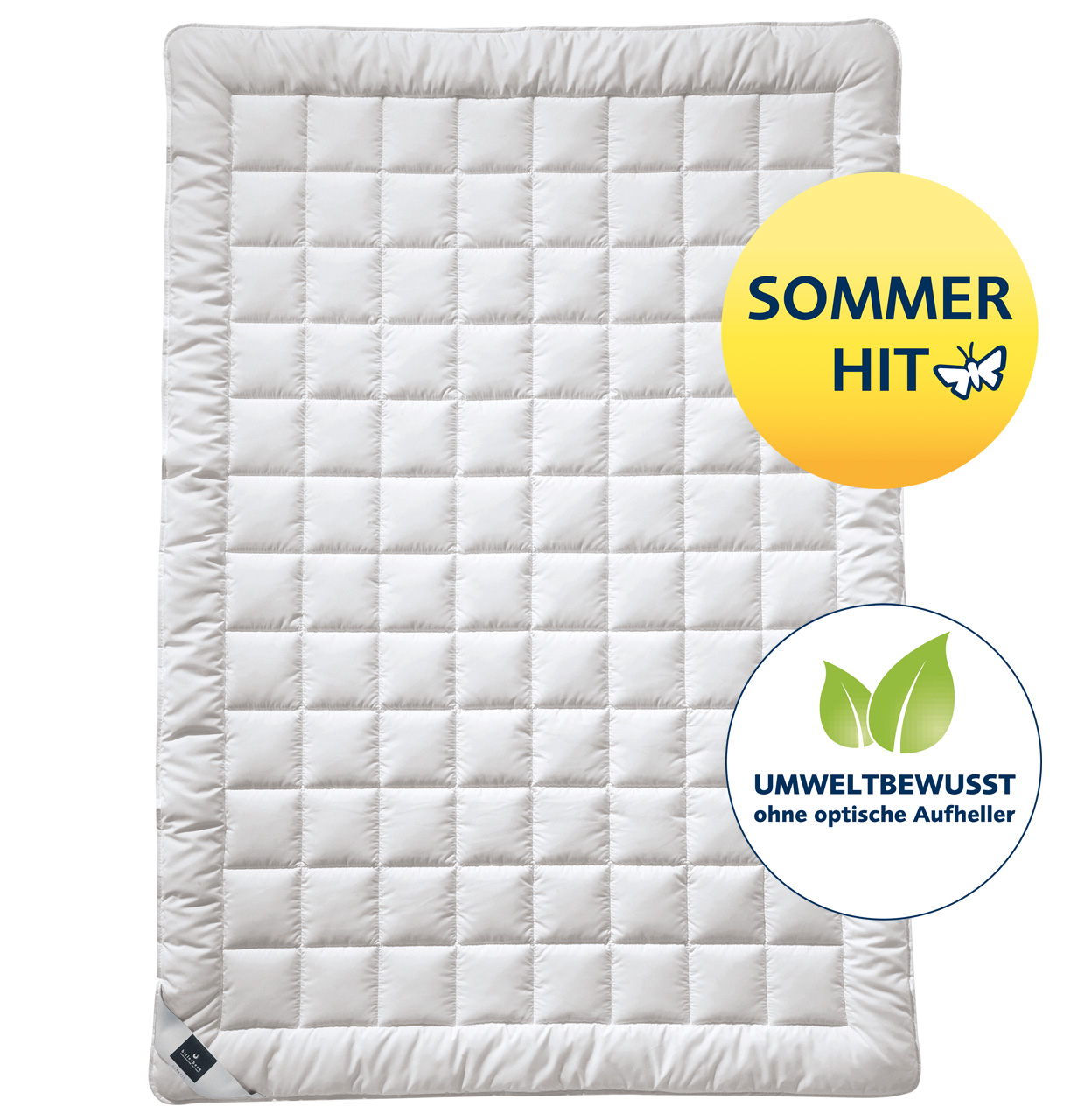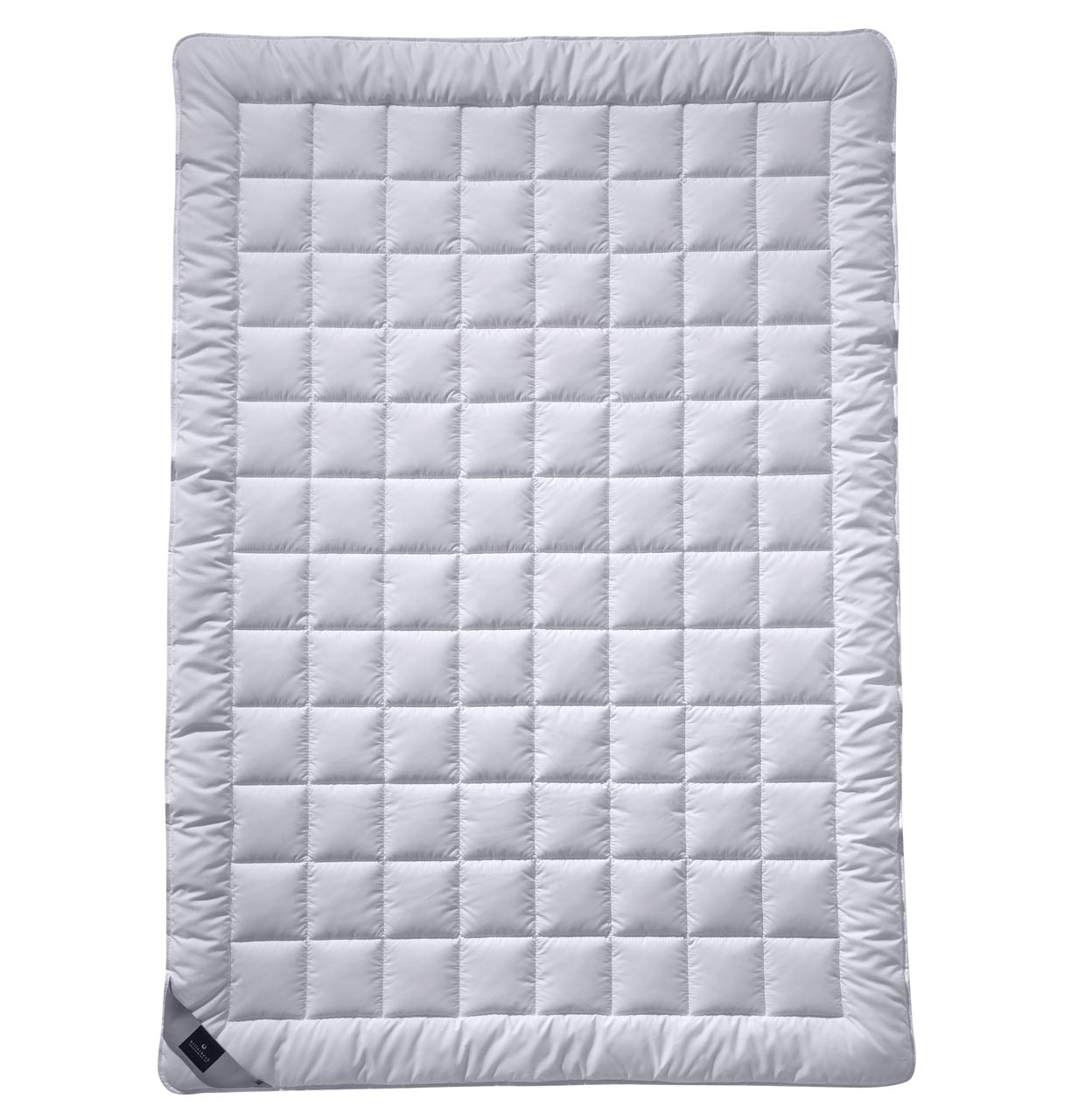Anti sweat duvets
Filter products
Filter
Filter products
- Filling: 100 % Tussah silk
- Cover: fine fabric, 100 % cotton
- Cooling effect
- Moisture-regulating
- Filling: 100 % cotton
- Cover: fine cotton fabric, 100 % cotton
- Skin-friendly
- High moisture absorption & durability
- Filling: 90 % Himalayan cashmere, 10 % Lyocell - Tencel™
- Cover: Batiste, 100% cotton
- Optimal climate control
- High moisture transport
- Filling: 90 % viscose (bamboo), 10 % AIRSOFT®
- Cover: cotton, polyester or blended fabric
- Good moisture management
- May differ from the original product
- Filling: 100 % camel hair
- Cover: extra soft satin, 100 % cotton
- Particularly good temperature equalization
- Very cuddly
- Filling: 100 % cotton
- Cover: cotton fine percale, 100 % cotton
- Boil-proof & dimensionally stable
- Particularly good moisture absorption

- Filling: 100 % cotton
- Cover: soft batiste, 100 % cotton
- GOTS certified
- Vegan, breathable & easy-care

- Filling: 100 % virgin sheep's wool
- Cover: soft batiste, 100 % cotton
- GOTS certified
- Optimum climate properties thanks to two different covers for summer & winter

- Filling: pure new sheep's wool with Swiss stone pine flakes
- Cover: cotton soft batiste
- High self-cleaning power
- GOTS certified

- Filling: pure new sheep's wool
- Cover: cotton soft batiste
- GOTS certified
- Excellent moisture management
- Filling: 100 % cashmere, hand-sorted
- Cover: soft down batiste, 100 % cotton
- Climatizing & moisture balancing

- Filling: 100 % cotton with Swiss stone pine flakes
- Cover: soft batiste, 100 % cotton
- GOTS certified
- Moisture-regulating
- Filling: 90 % viscose (bamboo), 10 % Airsoft®
- Cover: fine cotton fabric with beeswax finish
- Cooling & moisture-regulating
Find the right duvet if you sweat at night
Every person's need for warmth at night is different. In addition to age, gender or weight, the seasons in particular - with the varying outside temperatures - influence whether you sweat or freeze at night. Both affect sleep and should be avoided. With the right bedding, you can ensure a comfortable sleeping climate in every season. The choice of the right duvet is the most important, because it influences the feeling of warmth, the temperature balance and the moisture transport.
Sweating during sleep
Our body releases an average of half a litre of moisture during the night. Two thirds of the moisture is released through the skin. Blankets, pillows, bed linen, mattresses etc. must therefore absorb and wick away a great deal of moisture. Bedding should therefore have good air and moisture permeability.
Important selection criteria for the right duvet if you sweat at night
Basically, you can solve the different sleeping climate conditions of the seasons in two ways: By using an all-season du vet, or by using two or more duvets for the colder and warmer months. If you prefer a duvet that you can use in both winter and summer without sweating or freezing at night, it is best to go for all-season, uno or mono duvets. They have medium warmth retention and are suitable for sleepers who are not very sensitive to temperature and rest in bedrooms with constant temperatures throughout the year.
Winter Blankets:
Duvets for winter provide more warmth while still being breathable. If you sweat at night, it is important that the blankets quickly wick moisture away to the outside, thus ensuring a dry and comfortable sleeping environment. They should also be as light as possible, even with a high filling power.
Summer blankets - you can't do without a blanket either.
You should not sleep without sleeping clothes and without a blanket even in warm night temperatures. This carries the risk that the body cools down too much due to the release of sweat.
With the properties of duvets you no longer sweat at night
Many factors play a role in sweating at night. The duvet has the greatest influence on our sleeping climate. Often, an unsuitable duvet is the cause of sweating too much at night or being cold for longer. Several aspects go into choosing the right duvet.
- Personal need for warmth:
Blankets are usually marked with one to five warmth points, which allow you to categorize them from summer light to extra warm. Depending on whether you tend to sweat or freeze more at night, these warmth points provide a basic guide for choosing blankets that fit your individual needs.
- Warmth points:
summer light to extra warm
- Balanced moisture regulation with duvets:
The blanket should transport the moisture released by the body at night to the outside in the best possible way, so that a dry and comfortable sleeping climate is created.
- Duvet filling influences perspiration:
The selection of the appropriate filling of the blanket depends on the body sensation of each individual. Whether down, fibres or natural materials - all fillings are fundamentally suitable for use in summer or winter. Filling quantity and weight play an important role and reduce or increase the warmth capacity of the quilt.
- The quilt quilting has an effect on heat insulation:
The type of quilting has an effect on the thermal insulation of the duvet. For example, winter down quilts are usually equipped with inner bars that promote a higher volume. They prevent cold zones from forming at the quilting seams. With summer quilts, fabric is sewn onto fabric when quilting. This allows excess heat to escape unhindered.
CONCLUSION: Sweating at night is often the result of unsuitable duvets.
Duvets should be adapted to the individual requirements of the sleeper and the changing climatic conditions of the seasons. The choice of duvet is crucial here for a restful sleep without sweating and freezing. This also includes the personal decision whether to sleep under the same duvet all year round or to use one duvet each for summer, winter and the transitional period.

 Europa
Europa
 Schweiz
Schweiz
